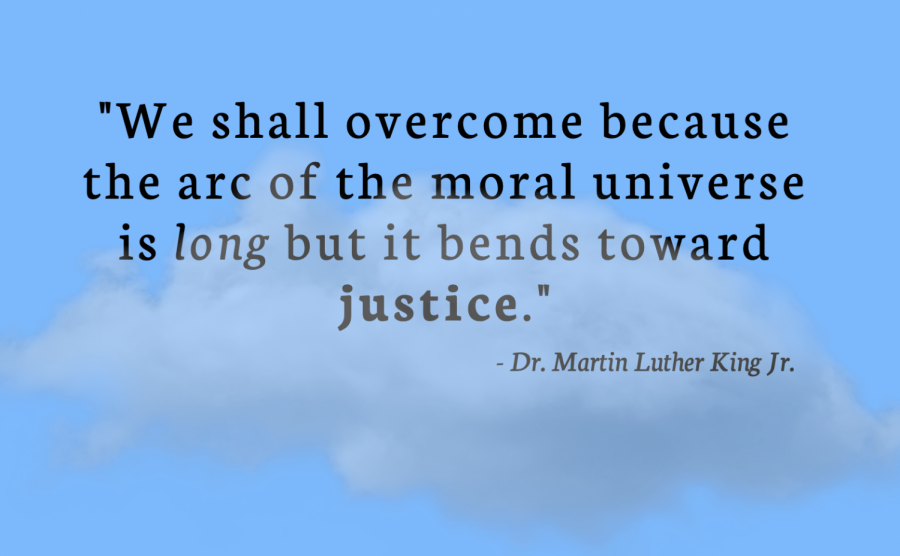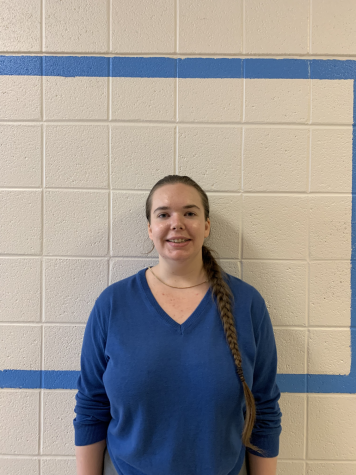“Hoping for the best and preparing for the worst”: Derek Chauvin conviction relieves Whitman community
A jury convicted former Minneapolis Police officer Derek Chauvin on Tuesday afternoon in the death of George Floyd. The conviction “shows that things are changing and we are taking some steps in the right direction,” sophomore David Akinyoyenu said.
April 21, 2021
A jury convicted former Minneapolis Police officer Derek Chauvin of second-degree murder, third-degree murder and second-degree manslaughter on Tuesday afternoon in the death of George Floyd. The defendant faces up to 40 years in prison.
Chauvin kneeled on Floyd’s neck for over nine minutes on May 25, 2020 in response to an allegation that Floyd used a counterfeit bill. Floyd died shortly after the encounter.
The conviction relieved many students within the Whitman community, some of whom are hopeful that the decision may set a precedent of greater nationwide police accountability.
“To see Chauvin convicted shows that things are changing and we are taking some steps in the right direction,” sophomore David Akinyoyenu said. “I am worried that some people might use this verdict as a token, but I think it’s going to make many police officers more careful. This shows that people actually have some power.”
Since news broke of Floyd’s death, sophomore Sophia Van Lowe has been anxious to see Chauvin convicted — so much so that she avoided watching the legal proceedings unfold because they were too nerve-wracking for her, she said.
“Waiting for the results has been stressful, but I’ve tried my best to stay optimistic,” Van Lowe said. “I was hoping for the best and preparing for the worst.”
During the trial, prosecutors heard testimony from a number of sources, including medical experts and law enforcement officials.
“While I was scared, I was also hopeful that a guilty verdict would be delivered, especially after seeing other police officers testify against Chauvin,” junior Felipe DeBolle said. “The anxiety definitely got to me, but seeing evidence being presented to the jury made me a little more confident.”
Chauvin is the first white police officer in Minnesota who a jury has found guilty of killing a Black man.
For Akinyoyenu, reading about Floyd’s death last spring — while difficult — wasn’t an entirely new ordeal. The sophomore has heard about instances of police brutality throughout his life, making it all the more pressing that the jury convict Chauvin, he said.
“I thought he was going to get a slap on the wrist,” Akinyoyenu said. “I was fully prepared for him to be released since in the US, we have a culture of protecting police.”
Despite the conviction, however, many students are confident that the road to achieving racial equality in America isn’t near its end.
Junior Sydney Spottiswood said that although Chauvin’s conviction was “really, really, big,” the verdict didn’t remedy any potential flaws in America’s policing systems.
“The world needs to address the racism and prejudice that allow such terrible incidents to happen in the first place,” Spottiswood said.
DeBolle said he believes the verdict will send a message that police officers “won’t go unchecked.” Still, he remains apprehensive about whether Congress is unified enough to pass substantial police reform bills.
“This one decision did not change our inherently broken system,” he said. “Widespread structural reform needs to happen with policing in this country, so that trials like this don’t even need to happen in the first place.”
For Van Lowe, Chauvin’s guilty verdict underscores — above all — America’s deep and lengthy history of prejudice against Black Americans.
“We have a lot of work to do as a country and all social justice work has to continue,” she said. “This is a victory, but it’s not our final goal.”
Sophia Van Lowe is a puzzles editor for The Black & White.
A previous version of this article stated that Derek Chauvin knelt on George Floyd’s neck for almost eight minutes. Prosecutors revealed in March that Chauvin was actually in the position for at least nine minutes. The Black & White regrets the error.











